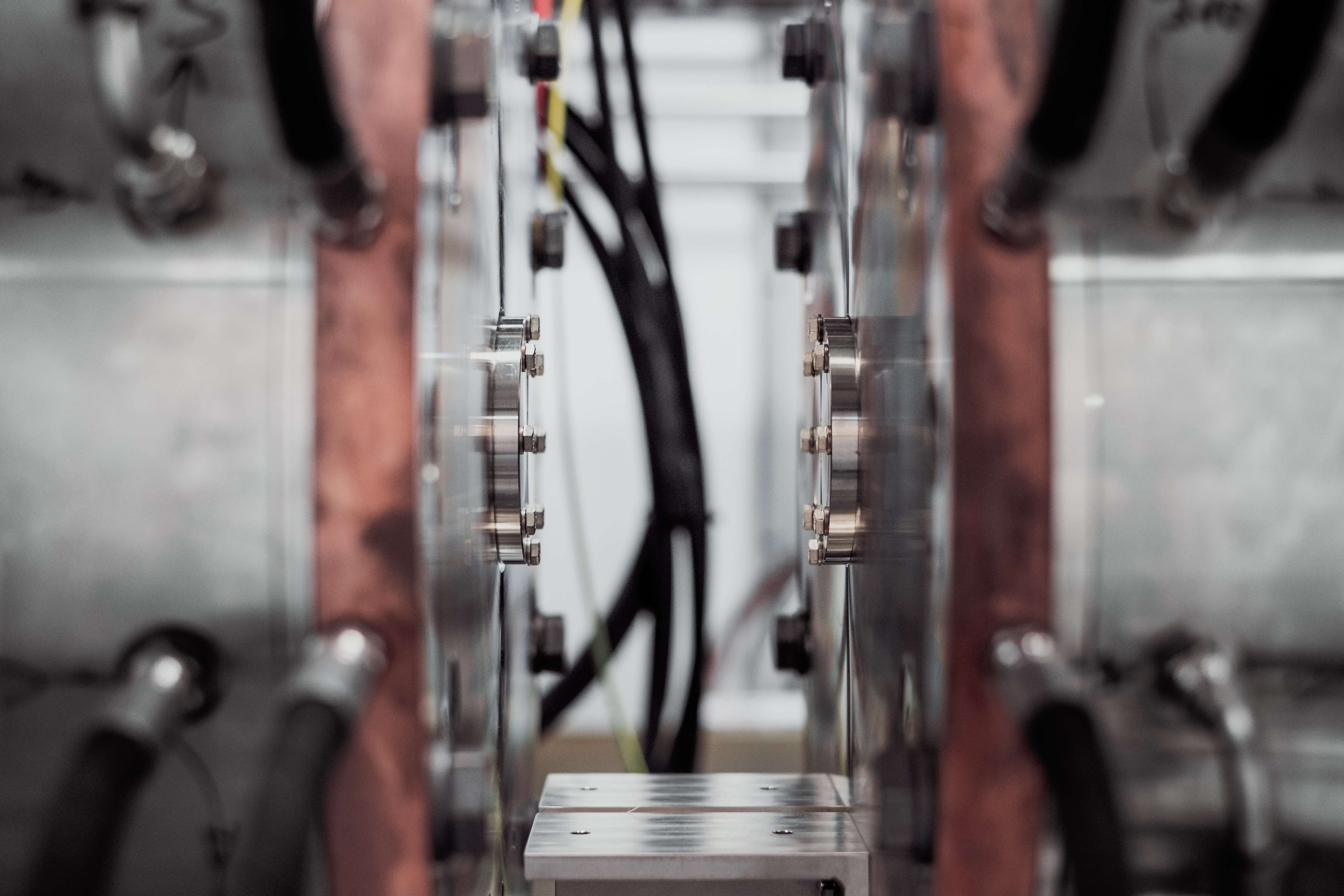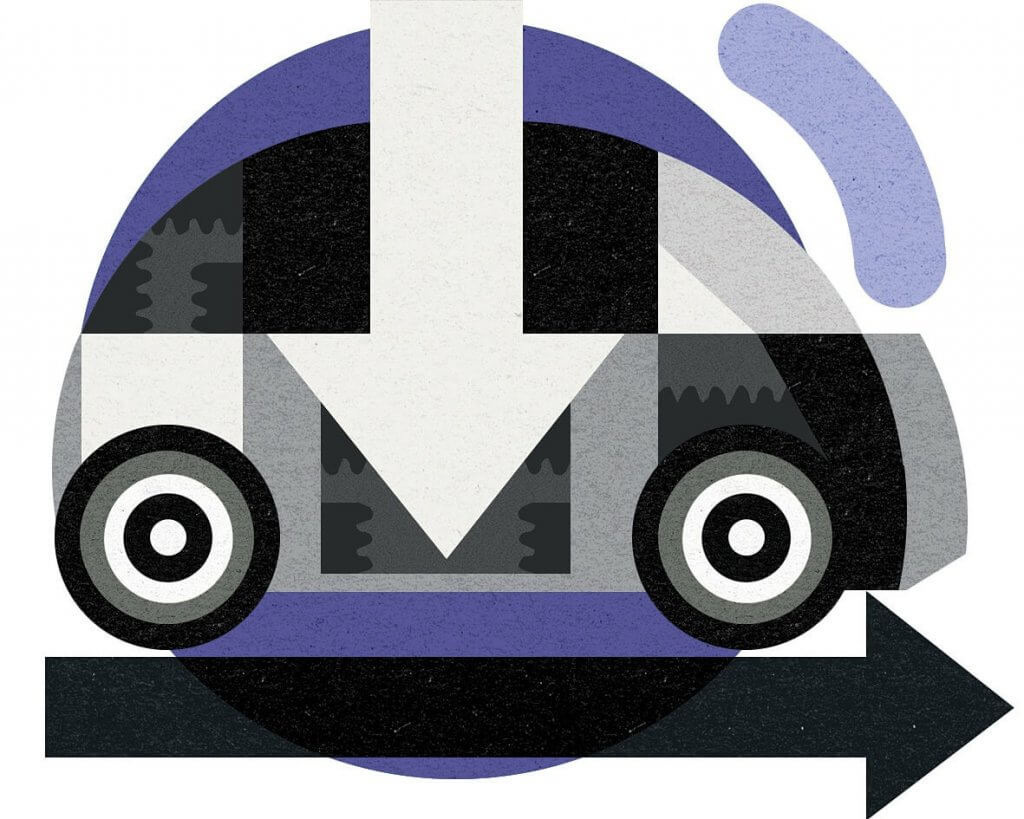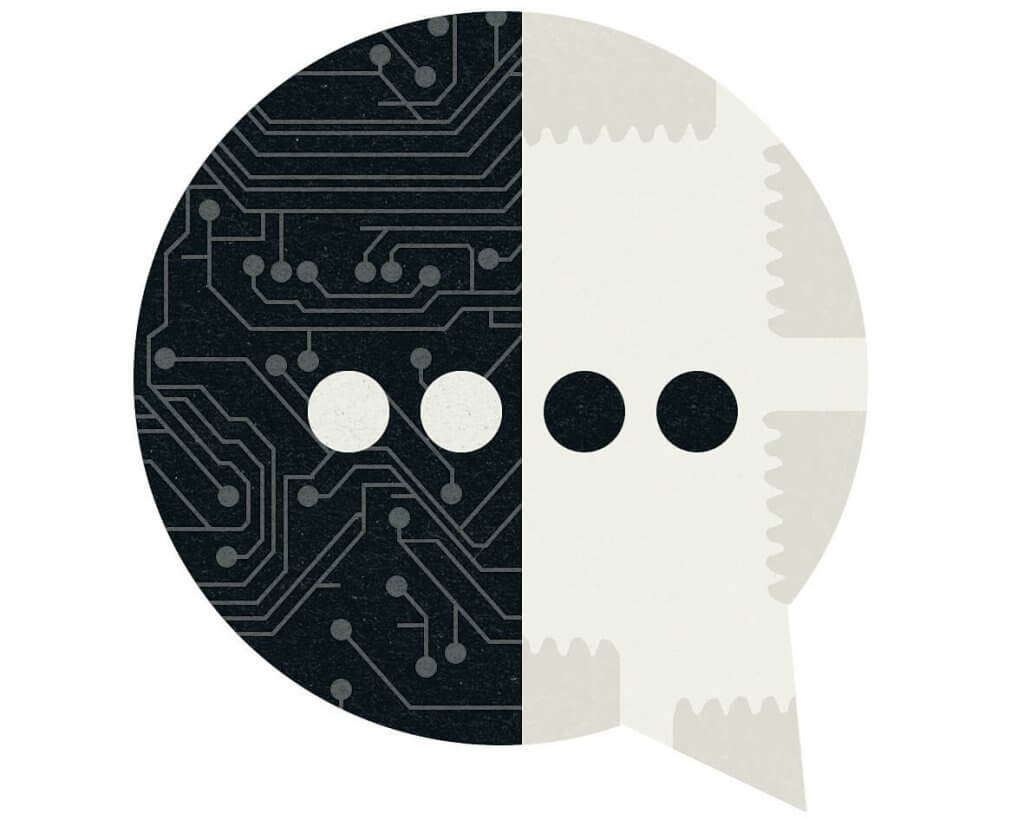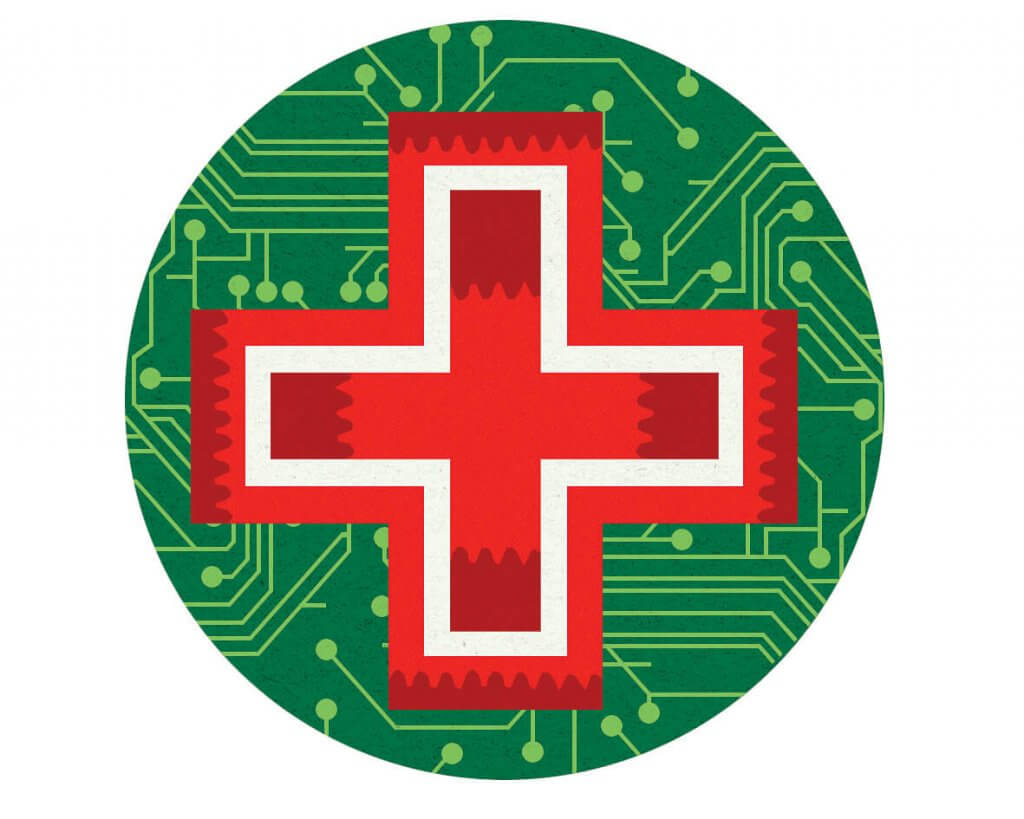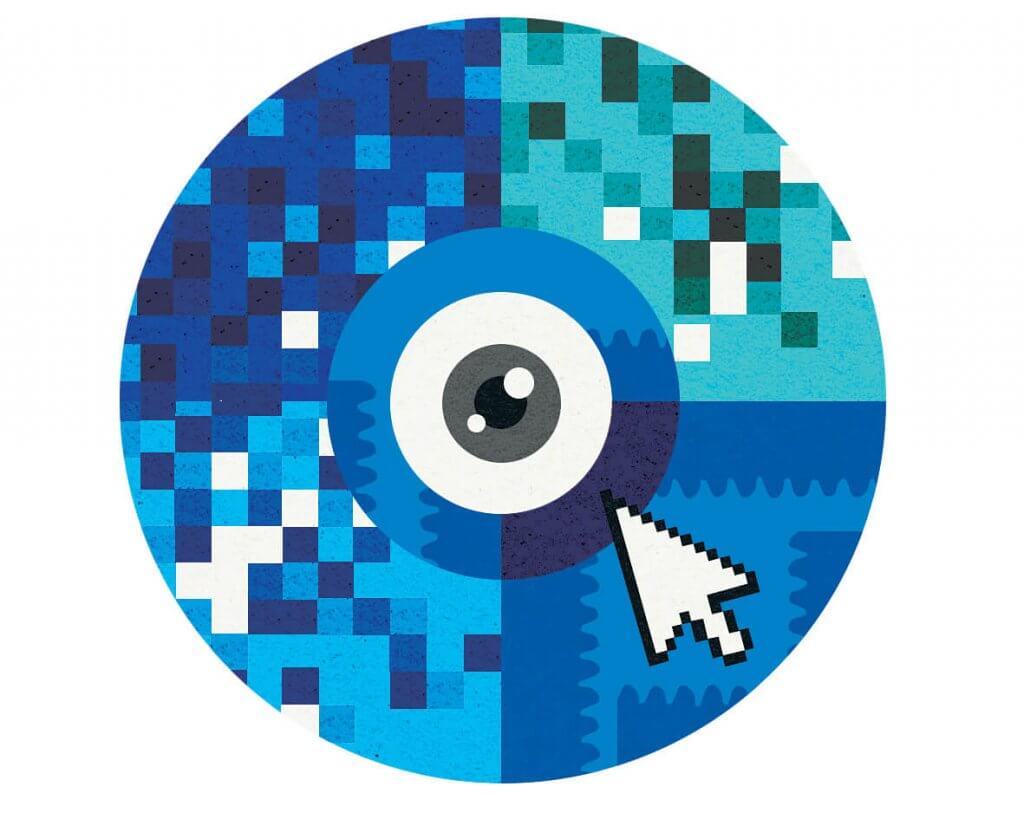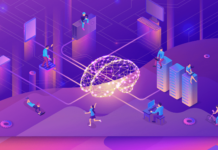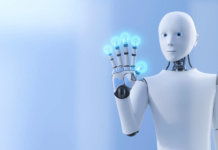Photo by Samuel Zeller on Unsplash
In March of 2016, a machine named AlphaGo beat a 18-time world champion in the ancient game of Go. This may not seem like a significant occurrence as machines have beaten human players in chess for years. But what makes this such an unlikely outcome is that Go is a more intuitive game where strategies must be devised based on multiple battles occurring simultaneously. For a machine to beat a human, it represents the upset of this young century. We’re already seeing how AI is starting to disrupt some traditional industries but many businesses still lag behind in AI adoption. Forrester Research recently surveyed more than 600 businesses and tech professionals and found that 58% said their organisation is researching AI, but only 12% reported actually using AI in their business right now. It is estimated that the global market for artificial intelligence tech is expected to be worth US $153 billion by 2020.
Illustrations by Amanda Willemse
Here are five industries that are seeing AI disrupt the fundamental way they do business.
1. Auto Insurance
Much like the flying car and personal jet-pack, it seemed the self-driving car would forever remain relegated to the realm of science fiction movies and tech geek fantasies. But with driverless trucks in test runs on the roads today and car manufacturers preparing to put fully autonomous cars on the market within two to three years, the inevitability of the autonomous car is becoming all too clear. In fact, the autonomous car market is estimated to be worth $42 billion by 2025.
The impact these vehicles will have on our everyday lives will be significant and far reaching. Impaired driving and human error related car accidents should quickly be all but eliminated. But as the roads become safer, what will this mean for the future of the auto insurance industry?
Many forecasts predict the industry will eventually be wiped clear off the map. How can the industry survive when autonomous cars make car accidents a thing of the past? “When autonomous vehicles rule the roads, they will eliminate the estimated 90 percent of traffic accidents caused by human error, which could save 30,000 lives per year and, according to an advisor to car insurance companies, wipe out car insurance companies,” according to a 2016 Forbes.com story.
One other possible outcome would see insurance companies overhauling their entire business model such that they focus on covering auto manufacturers against product liability claims. This would mean the end of personal auto insurance policies but would provide a lifeline to insurance companies.
2. Personal Assistants
While perhaps not industires in and of themselves, personal assistants and administrative assistants can be found in just about every business. And it may not be too far in the future when they become obsolete at the hands of AI.
There are already platforms in the marketplace that can automate many functions that humans would take care of in an office setting. One of the most promising is Amy, the brainchild of a New York startup called x.ai. The appeal of Amy is the stealth nature in how it operates. Just cc Amy’s email address in any communication about a potential meeting and Amy will take it from there.
According to Computerworld.com, “Amy is adept with natural language processing, which means you can use everyday language. For example, you might send an email to a colleague, copying Amy, and say: “Hey, let’s get together next week” or “Grab a bite next week?” or “We should connect.” Amy will then take action, introduce herself to the other person and, based on your calendar and preferences, suggest a time to meet.”
Another popular program is Slack, a messaging app which can take actions based on the nature of the conversation between users.
“Bots are great at making sense out of lots of different types of information (schedules, meeting notes, documents, notifications from other business applications), and making all of that data more useful by allowing people to interact with it like they would in a conversation with a person,” says a Slack head of platform April Underwood in a story on wired.com.
What makes these platforms truly disruptive is the human-like interaction they are able to provide. “Amy is believably human,” Computerworld surmises. “Within the confines of email conversations on the subject of scheduling meetings, Amy passes the Turing test.”
3. Personal Banking
Just how potentially disruptive is AI to the traditional banking industry? According to The Ecomomist’s 2016 retail banking report, almost half of banking executives surveyed believe the traditional transaction/branch based banking model will be dead by 2020.
It’s not just advances in AI that threaten the traditional model but also the consumer habits of millennials who are quickly becoming the largest consumer block. According to data from Accenture, 70% of millennials are open to financial services from a company currently outside of the traditional banks. Newcomers to the space like Google and Amazon are only too happy to provide a more tailored and mobile banking experience that millennials crave.
It may seem counterintuitive that AI can provide a more personal experience, but searchengineland.com believes it makes total sense.
“While the concern is that artificial intelligence will take away the human component to banking, the truth is that emerging AI technologies — particularly on the marketing side — allow banks to simplify interactions and only deliver the most relevant experiences for customers. Conversely, it allows financial services marketing teams to move away from mundane data and campaign processes, in favor of spending more time on creativity and innovation.”
Dataconomy.com reports that AI is now at the stage where it can serve financial/investor advisor functions that you would traditionally only find with your personal banker.
“Artificial intelligence in the markets means actually using hypotheses and strategies created by AI to make trades with real money. And, yes, it’s happening all over the world. Everything from AI acting as your personal stockbroker to artificial intelligence finding stock predictors to AI running entire hedge funds: it’s all here, right now.”
4. Healthcare
Imagine a world where your first point of contact in a medical consultation is not a doctor, nurse, or another healthcare practitioner but rather an AI interface. Today, that’s no longer theoretical thanks to a breakthrough by a British firm which has produced Babylon. Babylon is an application which provides medical AI consultation based on personal medical history and common medical knowledge. You simply tell the program what your symptoms are and, using voice recognition, Babylon will compare those against your medical history and come up with a course of action.
[ms-protect-content id=”4069,4129″]
This is not intended to replace doctors but rather offer initial advice to patients who may be days away from seeing their physician and need an immediate assessment on whether or not they should seek further medical attention.
AI is also being used to assist specialists in analysing data to come up with a more accurate diagnosis and treatment plan. IBM’s Watson now has a special program for oncologists.
According to a report in medicalfuturist.com, “Watson for Oncology has an advanced ability to analyze the meaning and context of structured and unstructured data in clinical notes and reports that may be critical to selecting a treatment pathway. Then by combining attributes from the patient’s file with clinical expertise, external research and data, the program identifies potential treatment plans for a patient.”
IBM has also launched an algorithm they call the Medical Sieve. “The ‘cognitive health assistant’ is able to analyze radiology images to spot and detect problems faster and more reliably. Radiologists in the future should only look at the most complicated cases where human supervision is useful,” according to the same report.
5. Retail
AI is already changing the way many big retailers are operating behind the scenes. Processes like inventory and supply chain management, once the domain of a human supervisor, are now totally managed through AI. But it’s not only behind the curtain where AI is completely changing the customer experience.
The advancement in chatbots technology has already found its way into customer service. Online shoppers at Sephora and H&M will find themselves approached by a helpful and friendly customer service agent who will guide them through their shopping experience. Many customers are unaware that they are actually interacting with a chatbot.
It’s not just customer service that is being transformed. The AI developments may render the entire concept of commercial websites obsolete. It was once seen as a huge step forward when you could go on a pizza franchise’s website and place your order online without having to phone in and speak to an actual person. Imagine a scenario where all you need to do is type “I want to order a pizza” into any messaging app and have an AI algorithm walk you through it and execute your order. And it’s not just pizza, this process will work for anything you can buy online.
In the near future, AI will likely replace the function of a human personal shopper. Dataconomy explains the process. “A user clicks on a product they’re interested in and the AI can suggest a few other, similar options. Once the user chooses to explore one of those options, the AI starts to intuit that customer’s personal style on the visual similarities between the products this user is interested in, eventually paring down entire catalogs into a few choices that are closest to what a shopper is actually looking for. Just like a good salesperson would.”
[/ms-protect-content]


